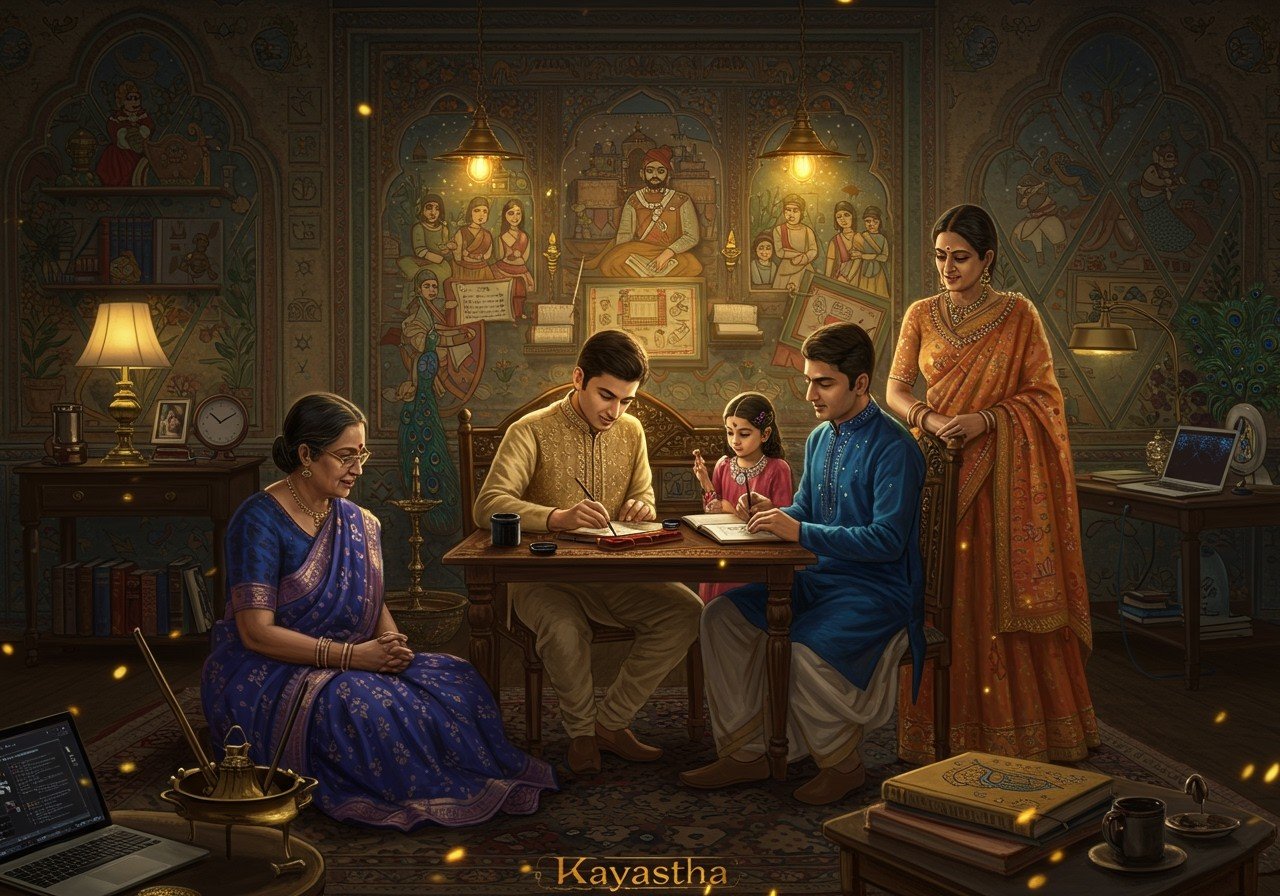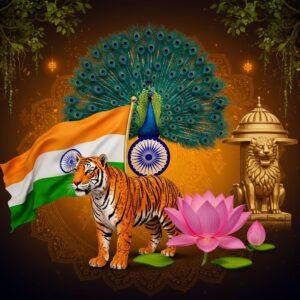
The Kayastha community, a vibrant part of India’s rich tapestry, beautifully blends time-honored traditions with modern values. Known for their historical roles as scribes and administrators, Kayasthas possess a unique blend of customs and practices that resonate even in 2025. This exploration delves into their rich cultural heritage, appealing to those who cherish both authenticity and convenience.
Kayastha Wedding Rituals: A Celebration of Love and Lineage
Kayastha weddings are a splendid display of the community’s deep-rooted cultural values. Pre-wedding rituals like the vibrant Haldi, where the bride and groom are bathed in turmeric paste, and the intricate Mehendi, where henna adorns the bride’s hands, fill the air with joy and anticipation. The sacred Mandap, often decorated with traditional motifs and flowers, serves as the backdrop for the exchange of vows. The poignant Kanyadaan, where the father entrusts his daughter to the groom’s care, underscores the strong familial bonds. Ancestral blessings and Kuldevta Puja, honoring the family deity, hold immense significance, connecting the couple to their lineage. You can find essential items for these ceremonies, like premium turmeric and auspicious diyas, at Poojn.in.
Kayastha Cuisine: A Feast for the Senses
Kayastha cuisine is renowned for its diverse flavors and culinary artistry. From the comforting Khichdi to the tangy Kadhi and refreshing Dahi Bhalla, each dish carries cultural significance. Aromatic spices and fresh ingredients create a symphony of tastes, adding depth and richness to every meal. Food plays a central role in Kayastha festivals and religious ceremonies, bringing families and communities together. The traditional Pancha Pakwan meal exemplifies Kayastha hospitality and generosity. Poojn.in offers a selection of pure and fragrant hawan samagri to enhance your culinary experiences.
Kayastha Surnames: Markers of Heritage and Identity
Surnames in the Kayastha community are more than just names; they represent a link to history and cultural identity. Names like Sinha, Srivastava, Mathur, and Nigam each tell a story, often pointing to ancestral roots and geographical origins. These surnames act as a thread connecting generations, fostering a sense of unity and pride. They are a testament to the community’s rich heritage.
Kayastha Customs in 2025: A Bridge Between Tradition and Modernity
Kayastha customs have gracefully evolved, adapting to the rhythm of modern life. While honoring age-old rituals, the community embraces contemporary practices. Technology plays a vital role, facilitating virtual ceremonies, online wedding planning, and digital platforms for community engagement. This blend of tradition and modernity allows younger generations to connect with their roots in new and meaningful ways. For those seeking traditional attire, Poojn.in offers a selection of pure cotton dhotis perfect for ceremonies and rituals.
Kayastha Festivals and Celebrations: Expressions of Faith and Community
Kayastha festivals are vibrant expressions of faith, community, and cultural identity. Chitragupta Puja, honoring the deity of knowledge and writing, holds special significance. Diwali celebrations are enriched with unique Kayastha traditions, and Holi brings the community together in a burst of color and joy. These festivals strengthen bonds, reinforce cultural values, and pass on traditions to the next generation.
FAQs about Kayastha Culture and Traditions
What distinguishes Kayastha wedding rituals? Kayastha weddings are known for their vibrant rituals, such as the “Kuldevta Puja” honoring the ancestral deity and “Kangna Bandhana” for protection and blessings. Looking for the perfect Kalash for your puja? Explore Poojn.in’s exquisite collection of clay ghats.
What culinary delights define Kayastha cuisine? From savory dishes like “Keema Kaleji” and “Nimona” to sweet treats like “Balushahi” and “Gulab Jamun,” Kayastha cuisine is a delightful blend of flavors. Want to learn more about Gujarati culture and cuisine? Check out this insightful blog post on Poojn.in.
What are some prevalent Kayastha surnames? Surnames like Srivastava, Mathur, Saxena, and Nigam are common, often signifying regional or ancestral ties within the Kayastha community. You can find various items related to puja rituals in the baran dala sets available at Poojn.in.
How do Kayastha traditions adapt to modern life in 2025? Kayasthas beautifully blend tradition with modernity, embracing online platforms for rituals and celebrations while upholding age-old customs. For those interested in South Indian traditions, explore Aksharabhyasam at Sringeri and the Udupi Sri Krishna Matha on Poojn.in.
Why is education valued in Kayastha culture? Education has always been a cornerstone of Kayastha culture, reflecting their historical roles as scholars and administrators. Discover the captivating history and architecture of the Sun Temple at Modhera on Poojn.in.
How do Kayasthas celebrate festivals? Kayastha families celebrate Diwali, Holi, and Chitragupta Puja with traditional fervor, strengthening community bonds and passing on cultural heritage.
What is the role of art and music? Art and music are deeply woven into Kayastha culture, enriching family gatherings and cultural events. They serve as a powerful medium of expression and creativity, connecting generations through shared experiences.
How do Kayastha communities connect in the digital age? In 2025, Kayastha communities utilize social media, online groups, and virtual events to connect globally, fostering a sense of belonging and shared identity. They leverage technology to share knowledge, celebrate their heritage, and preserve their rich cultural traditions.


